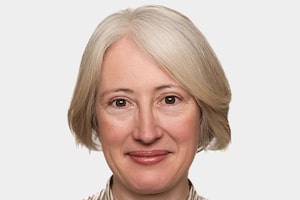Frances Woolley is a professor of economics at Carleton University.
I do not trust medical notes. When I see one, I do not know if the student is ill, or simply ill-prepared.
I do not trust medical notes because I do not trust physicians to act as gatekeepers. Doctors have no incentives to deny patients sick notes. People who seem physically healthy can be experiencing depression, anxiety or other mental health challenges, so writing a sick note is the safest course of action.
Others are calling the value of medical notes into question. Ontario's proposed new labour legislation, the Fair Workplaces, Better Jobs Act, would prohibit employers from asking for sick notes when employees want to take "personal emergency leave." The government task force behind the changes questioned the value of medical notes which "are costly, very often result from a telephone consultation and repeat what the physician is told by the patient, and … are of very little value to the employer."
Medical associations across Canada have been lobbying against sick note requirements for some time. When people suffering from a cold or the flu visit their doctor to get a sick note, they spread disease, and use valuable physician time. According to the Canadian Medical Association, form-filling represents a "significant administrative burden" on doctors, and takes away time they could spend providing direct patient care.
In Ontario, progress has been made in the fight against employers' demands for medical notes. Yet within the educational system, demands for medical notes are ubiquitous. At my university, some professors demand medical notes of students asking to defer any kind of examination, even low-stakes quizzes.
I wonder if these colleagues realize the hardship demands for sick notes can create. I have spent time in university administration, and heard heart-rending stories. Students have told me they faked medical notes because they were too sick to get to a doctor's office, or felt that they could not afford the $15, $25, or more that a medical note costs. I believe them.
There is an alternative. During the H1N1 crisis, University of Alberta waived sick note requirements for students wishing to defer a final exam, and has kept its no-sick-notes policy in place ever since. Students cannot be asked to provide medical notes to support requests to defer examinations, or be excused from term work. Instead, a sick student makes a statutory declaration of illness describing their condition. The university assumes the student is telling the truth.
A handful of other universities have also eased sick note requirements, generally in response to pressure from health providers. Queen's University's Student Health Services no longer writes sick notes, forcing that university to rely on students' self-declarations of illness. Memorial University stopped requiring sick notes for students who missed term work after the Newfoundland and Labrador Medical Association (NLMA) declared that doctors should not write sick notes for patients suffering short term illnesses.
Yet even at institutions with no-note policies, like the University of Alberta, the use of sick notes continues. Why is this when, according to the NLMA, doctor's notes serve no purpose except to inconvenience the student and inconvenience the doctor?
I believe that, for some, inconveniencing students is the point. They wish to discourage student excuses, for good reasons. Students who are out of sync with the rest of the class disrupt instruction for everyone. Deferred exams create extra work for instructors, especially the conscientious ones who create new exams for students writing late.
Moreover, lax deferral policies can hurt students. They feel unfair, because some students get extra time to study. Moreover, they tempt students to procrastinate. Yet delaying the date of a final examination can worsen student performance, not improve it.
There are alternatives to the status quo. Sick notes provide professional certification that a student is telling the truth. But why does that certification have to come from a doctor? Medical notes could be replaced with affidavits, notarized by lawyers. Sick students could spread their germs around law firms, and use up legal time, instead of socially valuable physician time. Ridiculous – but worse than the status quo?
Other options would address the root causes of sick note overuse. Co-ordinating due dates across courses, and having more frequent, lower-stakes assessments, would mean fewer overwhelmed and desperate students. Tracking deferrals, and only requiring medical documentation from chronic deferrers, could prevent abuse and also ensure students who need help get it. Ultimately, educational institutions need to stop asking doctors to police student behaviour, and instead create structures that support and incentivize good time management.
 Frances Woolley
Frances Woolley